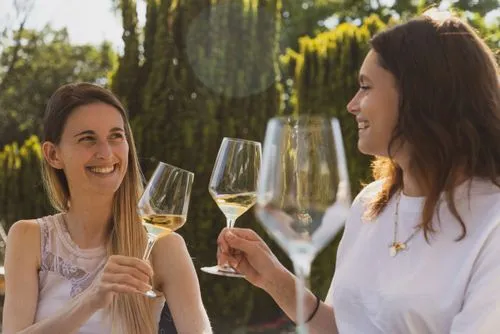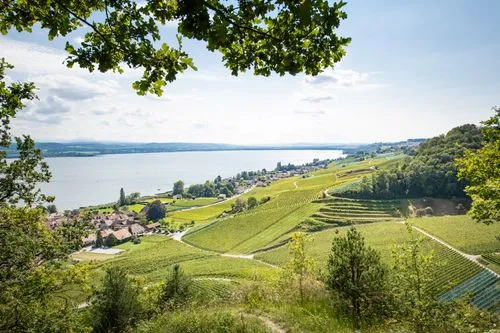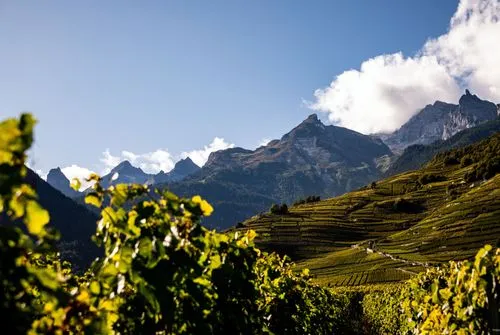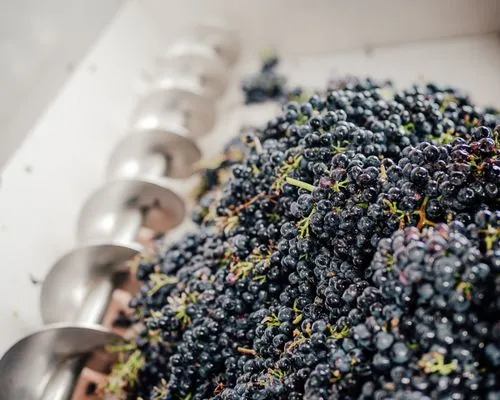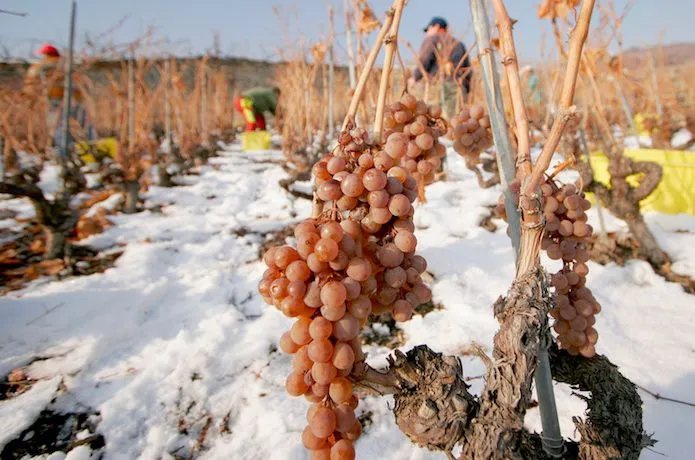Grain noble - ConfidenCiel
[]
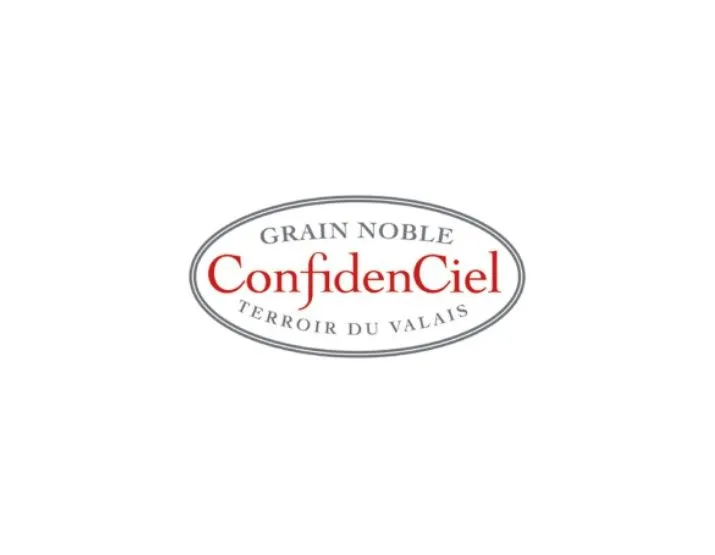
Grain Noble ConfidenCiel, a guarantee of quality
The Charte Grain Noble ConfidenCiel was created in 1996. It accounts for much of the success today of the sweet wines of Valais. Some 30 producers have banded together to
encourage this tradition of great wines made from vine-dried grapes. These producers sign a charter agreeing to respect rules whose key points are to:
Use traditional Valais grape varieties planted in the best areas and from vines that are at least 15 years old: Petite Arvine, Ermitage, Johannisberg, Amigne, Paien and Malvoisie.
Leave the grapes to develop a high level of natural sugar in the must (minimum 130 degrees Oechslé, without adding sugar)
Let the wines mature a minimum of 12 months in wood, either casks or barrels
The Grain Noble ConfidenCiel is given only after an internal tasting session by the group, which retains wines judged sufficiently worthy.
The Grain Noble ConfidenCiel Charter
Launched in 1996 by Stéphane Gay, engineer in oenology, the «Grain Noble ConfidenCiel» charter groups today more than 30 wine producers from Valais. All work at producing great sweet wines, steming from roasted and concentrated traditional« valaisan» grape harvest.
The wine producing region of Valais has a great tradition in the production of roasted grapes which remain on the vine stock until the late harvest, the result is a complex and aromatic sweet wine. To maintain this tradition Stéphane Gay and five other producers (Charles Bonvin and sons, Cave du Cheval noir, Cave la Liaudisaz-Marie Thérèse Chappaz, Domaine du Mont-d'Or and Cave Provins) launched in 1996 the« Grain Noble ConfidenCiel» Charter. The signatories were committed to respect ten points of its ground rules, aiming at producing exceptional wines.
Traditional grape varieties
Not any wine can carry the« Grain Noble confidenCiel» logo. Only six traditionally regionally produced wine varieties can earn this distinction: Arvine, Ermitage (marsanne), Johannisberg (sylvaner), Malvoisie (pinot gris) and Amigne. Each has itscharacteristics. The Arvine and Païen have fruity aromas, vivacity and freshness. The Ermitage is more ample and structured, with a raspberry liquor and white trufle nose. The Johannisberg with its pear fragrances is usually smooth and rich. Whereas the Amigne and Malvoisie are more tender and round than the other sorts.
Taking into account each variety's characteristics, the producers can elaborate the wines individually or combine them to obtain more complexity.
The importance of the climate
If the wine varieties are very important in the elaboration of the sweet wines, the climate is still the essential quality factor. When the autumn months are warm and dry, the grapes' water evaporates and they start to roast. We then find all the aromatic characteristics in the different varieties. To obtain a roasted harvest, the grapes have to be attacked by a fungus, the BotrytisCinerea which destroys the outer layer and provokes the« pourriture noble», a garantee for outstanding incredibly complexe wines. The ideal conditions for this little miracle is nature are precise: a period of rain at the beginning of October, followed by a phase of warmth or foehn of two or three weeks. The wine probing can reach easily 170 oechslé degrees during great years (1994 or 2001 for example).
The ideal conditions are only rarily obtained, often roasted grapes are harvested together with the wilted grapes. The fungus characteristics of the« pourriture noble» are mixed together to the pure aromatic notes of the wilted harvest.
The« Grain Noble ConfidenCiel» charter lays down the rule of using a minimum of twelve months a barrel stock. The wine wins in colour and aroma complexity thanks to the wood related oxydo- reduction phenomenon. The other advantage is the lengthening of the wine ageing potential.
The« spirit» of the Charter
The Charter signatories also accepted other constraints (choosing the best zones, vine stocks older than 15 years, at least 130 Oechslé measured in the must and not enriched, giving up the quality label unless the quality is present). At the end of each year, an intern wine tasting disqualifies wines with insufficient potential. For the rest of the criterias it is a matter of trust. That is the spirit of the Charter wished by the initiators, a spirit garanteeing progress in the conviviality dear to wine lovers.
The Charter
To promote and defend the naturally concentrated sweet white of wines of Valais « Grain Noble » the producers committ themselves to the following selection criterias:
Select the best situated first zone vines;
Only take into consideration vines which are fifteen years and older;
Restrict their choice to the following varieties: Arvine, Ermitage, Johannisberg, Malvoisie and Amigne;
Limit the use of the quality label« Grain Noble ConfidenCiel» to wines elaborated exclusively from
grapes harvested and matured directly from the stock;Renounce to any form of artificially enriching the grapes or must;
Select only must have reached a minimum of 130° Oechsle degrees;
Respect a vinification in barrel of at least twelve months
Renounce to the label when the climate hasn't permitted optimal conditions for outstanding quality;
Produce late harvested sweet wines only on favourable years
Defend the spirit of the charter, which relies on ethic and trust.
Valais, september 1996
To visit our site, you must be of legal drinking age in your country of residence.
